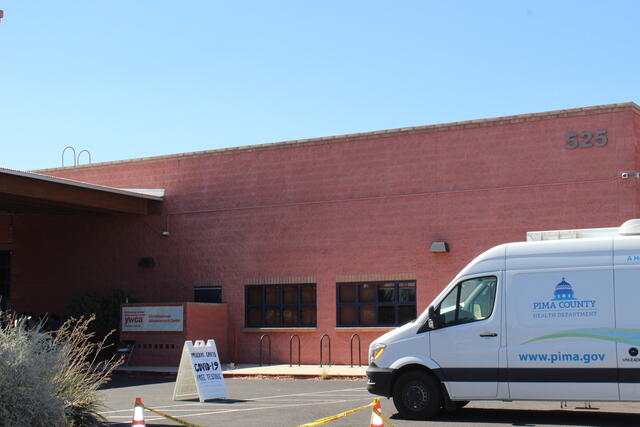
With over 11 million cases of COVID-19 reported in the United States since the pandemic began and daily cases surging across the country, the International Rescue Committee in Tucson is partnering with the Pima County Health Department to ensure the communities hardest hit by the pandemic have access to the information and healthcare they need to stay safe and healthy.
This past September, the IRC in Tucson and the Pima County Health Department received a grant from the Arizona Department of Health Services to work on a program titled “Mitigating the Impact of COVID-19 in Communities of Color,” also known as the MC3 program. The COVID-19 pandemic has had and continues to have a disproportionate impact on communities of color due to disparities in access to healthcare and other social factors. In Pima County alone, about 34,000 cases of COVID-19 have been reported and as numbers continue to rise, it is more important than ever to provide access to COVID-19 testing and access to healthcare in underserved and marginalized communities like the refugee communities the IRC serves.
The goal of the MC3 program is to reduce the disproportionate burden of COVID-19 among vulnerable populations through increased education and awareness, increased access to testing, and rapid response care coordination and case management services.
Through this program, the IRC and the Pima County Health Department have set up mobile testing sites in hotspots around Pima County as well as places that are integral to the refugee community. Working with community leaders, the MC3 program has identified places within the refugee community like doctors’ offices, community centers, apartment complexes, day care centers, k-12 schools, grocery stores and faith-based centers where people normally congregate for dissemination of information in order to reach the maximum amount of people. In addition, the information distributed is culturally and linguistically appropriate for the communities in which it is distributed. People within the communities distribute the information as well in order to create trust and a good relationship between the MC3 program and the communities the program is serving.

All mobile testing sites set up by the MC3 program are free with no identification or insurance required. The sites are walk-up, not drive-thru, and no appointment is necessary. People coming to the mobile testing sites will receive the PCR swab test for COVID-19, an optional flu vaccine, and a health kit which includes essentials like a face mask, hand sanitizer, water bottle, and thermometer. The only requirement is an email or phone number in order to receive the results of the test. The program is accessible to people who speak all languages since interpretation services via language lines are available.
Beyond testing, Pima County Health Department and the IRC are providing care coordination and case management services to people who test positive for COVID-19. Non-English and non-Spanish speakers who test positive for COVID-19 are referred to the IRC which provides services to help people through quarantine and with any other assistance they might need.
Since the program began in September, the IRC and Pima County Health Department have tested about 1,600 people. With cooler weather on the way, the holidays fast approaching, and cases of COVID-19 increasing rapidly across the country, it is more important than ever to protect the most vulnerable among us. Please tell your friends and family about this program and remember to continue to keep yourself and your family healthy and safe; wash your hands, wear a mask, and maintain social distancing as much as possible.
Below are the past and current testing sites with dates and times provided through this program.

To find more information about COVID-19 testing in Pima County check the Pima County Health Department website. For resources about COVID-19 and how to protect you and your loved ones, check the CDC website.